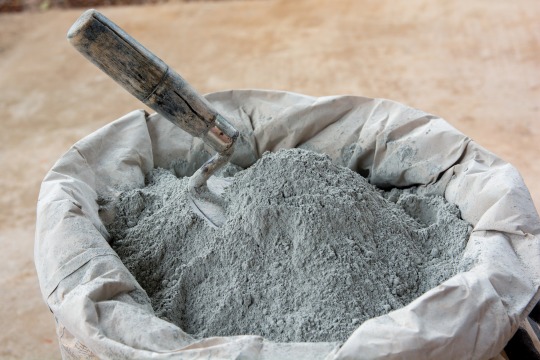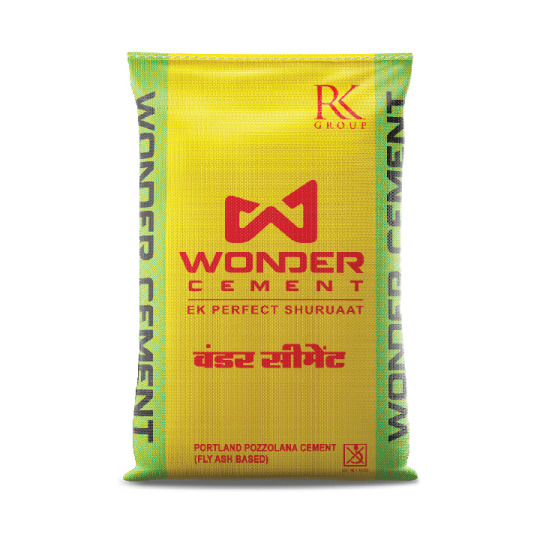Text
Wonder Cement Limited is one of India's youngest and fastest-growing cement manufacturers, operating in nearly a dozen states, including Rajasthan, Gujarat, Maharashtra, Haryana, Delhi, Uttar Pradesh, Punjab, Uttarakhand, Madhya Pradesh, and, Jammu & Kashmir. Our plant at Nimbahera (Rajasthan) is amongst the most modern cement plants in the country, and it was set up in technical collaboration with ThyssenKrupp and Pfeiffer ltd., world leaders in cement technology.
#cement#cement supplier#concrete#home#architecture#cement manufacture#cement manufacturer#wonder cement#construction#cement bricks#cement production#fly ash bricks#waterproof cement
0 notes
Text
What are the types of tests to check the quality of Cement?
Cement is an important component in construction work. It is mainly used for masonry and concrete construction. A significant part of the strength of a structure depends largely on the quality of cement. It is very important to check the quality of cement to prevent possible structural defects due to the use of defective materials. Strength, structural durability, and the rate of setting of the cement according to the needs of the work are the basic properties of cement that must be considered when constructing.
In this article, we will discuss some of the quality tests on cement carried out in the laboratory.
Fineness Test
Consistency Test
Setting time Test
Soundness Test
Strength Test
Fineness Test: Fineness testing of cement is performed to measure the average size of cement particles or grains and the surface area of cement particles per unit mass. Cement fineness testing is performed by sieving cement samples through standard IS sieves. However, increasing the fineness means using more water for processability and increasing the chance of drying shrinkage. There are three methods that are commonly adopted and practiced for measuring cement fineness.
Sieve Method
Air Permeability Method
Sedimentation Method
2. Consistency Test: The standard consistency of cement paste is defined as the consistency that allows the Vicat plunger to penetrate the cement paste to a point of 5-7 mm from the bottom of the Vicat mould. This test is conducted to determine the amount of water required to produce cement paste of standard consistency.
3. Setting Time Test: Cement setting time is divided into two categories:
Initial Setting Time: Cement's initial setting time is the period of time before the cement paste begins to harden. For ordinary Portland cement (OPC), the initial setting time is 30 minutes.
Final Setting Time: The final setting time of cement is the time when the cement paste completely loses its plasticity and hardens. The final setting time for Ordinary Portland Cement is 10 hours (600 minutes). The tests performed to measure the setting time of cement are the Vicat penetration test and the Gillmore needle method.
4. Soundness Test: Cement soundness refers to the ability of cement where it doesn’t undergo big changes in terms of volume after being fully set up. The cracks will appear in the concrete or mortar if the cement paste goes under large volume changes. So, it is very necessary to test the soundness of cement. The tests performed to check the soundness of cement are the Le-Chatelier method and the autoclave method.
5. Strength Test: The Compressive Strength Test and Tensile Strength Test are the most common tests which are carried out to check the strength of cement. The tests that are performed to check the strength of the cement are:
Cement mortar cube test (For Compressive Strength)
Briquette test (For Tensil Strength)
It is essential to precisely check the quality of cement before construction to avoid cracks and other damages. There are various cement manufacturing companies in the market that produce quality cement like Ultratech Cement, Ambuja Cement, Dalmia Cement, etc. But Wonder Cement is the perfect choice when it comes to the best quality of concrete. It has been manufactured from the best quality limestones available and by using state-of-the-art German technology. It has undergone various quality checks and proven to be the absolute best.
#cement#best cement#cement distributor#cement manufacturer#best cement company#cement industry#cement plant#construction#cementdealer#building materials#affordable cement#slag cement#concrete#ready mix concrete#cement for roof#cement for house construction#cement test#quality cement#maharashtra#gujarat#madhya pradesh#punjab#rajasthan#haryana#delhi#uttar pradesh#uttarakhand#jammu and kashmir#india
0 notes
Text
What are the benefits of PPC Cement?
There are a lot of factors that one should consider while buying cement for their dream home.
The list goes on and on from cement brand, cement price, cement type, availability, and packaging.
Let's look at the benefits of PPC or Portland Pozzolana Cement which will help you to choose the perfect cement for your home.
What is PPC cement?
Portland Pozzolana cement is produced by synthesising OPC cement with pozzolanic materials in a specific ratio. It is generally called PPC cement.
PPC is one of the popular varieties of cement available in the Indian market. It is a blended cement that contains fly ash apart from clinker and other materials.
The use of fly ash in reasonable proportions in the cement composition makes PPC a greener alternative among other kinds of cement.
Benefits of PPC cement:
PPC has a little longer setting time but requires a lower water-to-cement ratio.
It is suitable for extreme environmental conditions and is highly resistant to sulphate attack, your building will be able to survive in the intensest conditions.
It is cheaper than other types, making it a cost-effective alternative.
It can be used for any construction purpose including houses, buildings, bridges, roads and dams.
After setting, PPC provides a smooth, crack-free surface and better protection against corrosion.
PPC in concrete helps to reduce drying shrinkage. Drying shrinkage is reduced due to decreased inner concrete stresses & slower heat generation.
Applications of PPC:
It is suitable for prestressed and post-tensioned concrete members.
It is also applied in masonry mortars and plastering.
Since it comes with a superior surface finish, it is utilised in decorative and art structures.
It is employed in developing precast sewage pipes.
It is suitable for rough concreting conditions.
PPC is the ideal solution for all ceiling construction requirements. It is also the answer to all the challenges you face while building in India as it has advantages over OPC cement
In addition, PPC is the future of construction as it is a greener alternative. Many brands of Indian cement produce large quantities of PPC that meet all kinds of construction needs and cope with extreme weather conditions in different parts of India.
With so many decisions to take, home construction can quickly become stressful. If you are confused about which PPC Cement to buy, you’ve come to the right place. Various cement companies like Wonder Cement, Ultratech Cement, JK Lakshmi Cement, Sagar Cement, Dalmia Cement etc, all these cement companies produce the best quality PPC cement.
You can connect with your nearest Cement dealer for more information and the latest cement price.
#cement#best cement#cement distributor#cement manufacturer#best cement company#cement industry#cement plant#portland#portland cement#ordinary portland cement#building materials#building maintenance services#building maintenance companies#slag cement#affordable cement#cementdealer#ready mix concrete
0 notes
Text
What is Portland Cement and which is the best Portland Cement in India?

Among cement types, Portland Cement is the most common. It is usually made by heating limestone (calcium carbonate) in a kiln with clay. This process is known as calcination and it liberates carbon dioxide from the calcium carbonate to form calcium oxide. This compound is then mixed with the other materials to form ‘clinkers’ i.e. cementitious compounds such as calcium silicates. These clinkers are then mixed with a small amount of gypsum into a powder to make Ordinary Portland Cement (OPC.)
As Ordinary Portland Cement is made of limestone, it’s important to source the best limestone possible to produce the best quality cement. And when it comes to this, no one can beat Wonder Cement.
Wonder Cement mines limestone using eco-friendly blasting technology called NONEL (Shock Tube.) The newly mined limestone is then sent for crushing, grinding and packaging. This entire process is fully automated and adheres to strict quality standards. To ensure these standards are met, the ROBOTIC (POLAB) system has been deployed by Wonder Cement.
Ordinary Portland Cement by Wonder Cement is ideal for applications like high-rise buildings, commercial and industrial complexes, roads, runways, bridges and flyovers, heavy defence structures, etc.
OPC by Wonder Cement has many incredible benefits. Some of them are:
Due to its low percentage of alkalis, chlorides, magnesia and free line in its composition, the concrete made of Ordinary Portland Cement is highly durable and sound
OPC has an almost negligible amount of chloride, this results in restraining corrosion of the concrete structure even in highly hostile environments
Due to its high strength, one can save a significant amount in cement consumption while making concrete of grades M15, M20, M25, and M35 with OPC
Apart from OPC, Wonder Cement also makes Portland Pozzolana Cement (PPC) and Xtreme.
You can connect with your nearest Wonder Cement dealer for more information and the latest cement price.
#cement#best cement#cement distributor#cement manufacturer#best cement company#cement industry#cement plant#portland#portland cement#ppc#opc#portland pozzolana cement#ordinary portland cement
0 notes
Text
0 notes
Text
youtube
0 notes
